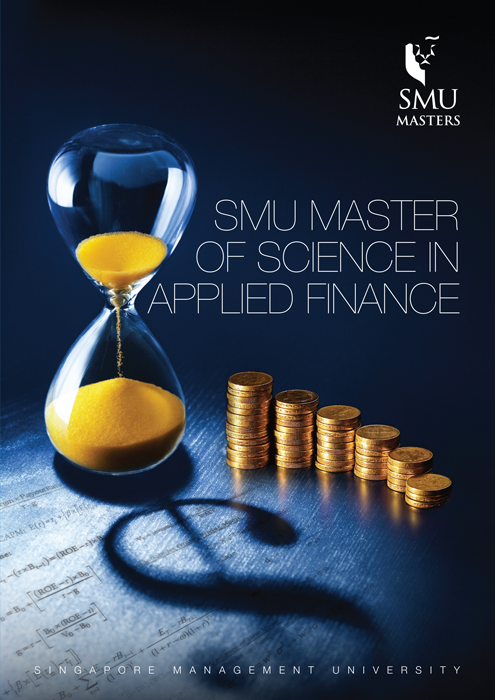
According to an article published on TODAYonline, Singapore millennials are reportedly more financially literate than most of their Asia counterparts. That’s cause for celebration, but there is still room for improvement. After all, the realm of finance is often one that is intimidating, and making sound financial decisions require much knowledge and experience.
Financial literacy encompasses many factors, from interest rates to market trends and even how the era of digitalisation is changing the way financial decisions are made. Hence, aside from financial concepts and knowledge, understanding finance today also involves having some knowledge of digitalisation.
In a MSc in Applied Finance (MAF) and MSc in Quantitative Finance (MQF) Masterclass and information session held at Singapore Management University (SMU), financial literacy was discussed. The session was conducted by Roger Loh, Associate Professor of Finance at Lee Kong Chian School of Business. Here are some pointers from the session that we found interesting.
Herd mentality versus financial literacy
Just as with societal behaviours, herd instinct in finance is a phenomenon whereby investors act in a manner similar to that of other investors — regardless of actual market fundamentals or statistical evidence.
When an investor is ruled by this very natural human tendency in making financial decisions, then “if a crowd suddenly starts running in one direction, it’s normal for you to run in that direction as well, even if there seems to be no rational reason for that”, said Professor Loh. In other words, if everyone is jumping ship during a sell-off or rushing to buy during a market rally, an investor would also do likewise as part of a fear of missing out.
Professor Loh explained that while societal influences might be useful to spur someone to action (for example, realising the need to start investing to save for retirement), that same tendency to follow socioeconomic norms may also be applied in less desirable situations like buying into speculative investments just because everyone else is doing so.
In comparison, a sound financial decision would require an understanding of why a market trend is skewed a certain way. For example, “political events, such as terrorism or political unrest, may cause sudden panic selling”, he elaborated. It is also vital to observe past trends over a sustained period of time to assess the future value of shares or investments, instead of being swayed by the behaviour of others — which may only result in small gains in the short run but result in significant losses over a longer period.
Prof Loh adds that an investment without a good understanding of the market or financial concepts such
Simple steps to take
Even those who have taken steps to become more financially literate may still feel intimidated by the effects of behavioural finance, and may need to bolster their theoretical knowledge with real world examples in making financial decisions. After all, “there is a huge leap from studying and understanding, to its ultimate execution”, Professor Loh pointed out.
“There is a constant need to renew, relearn and pursue raised standards of knowledge and skills in applied and quantitative finance, and to avoid common misconceptions of financial investments in order to keep up with the ever-changing world,” said Professor Loh. “Students and career-makers alike need to constantly find ways to attain this set of knowledge and skills.”
Aside from renewing knowledge on finance, it is also important for students and career-makers to avoid falling into common misconceptions such as “overly relying on using past price information to make predictions about future prices”, added Professor Loh. He emphasised that in many situations, no or little relationship exists between past price patterns and future profitability for a particular investment under consideration, and misconceptions cause many to make skewed financial decisions.
Building an arsenal of knowledge is helpful to avoid a reliance on herd investing, and believing in a stock or fund not so much based on its performance and value, but being afraid that others will win big on the investment and you won’t. Instead, one needs to do the homework when it comes to investing, through courses, master classes, and reliable research.
Credible online financial courses can also be useful for those who do not have the time to pursue further studies or a degree. “These can greatly help one in understanding the multi-layered world of finance.”
As the masterclass highlighted, understanding finance requires awareness and mastery of many important elements. Relying on sheer herd instinct without a good understanding of these factors will not reap benefits in the long run, and may well lead to deflated balances.
Speak to our Admissions Advisors
Lee Kong Chian School of Business
Postgraduate Admissions
Singapore Management University
Lee Kong Chian School of Business
Graduate Programmes Office, Level 4
50 Stamford Road, Singapore 178899
Tel: +65 6828 0882
Join us at the upcoming events
Singapore Management University
50 Stamford Road Singapore 178899
Singapore
